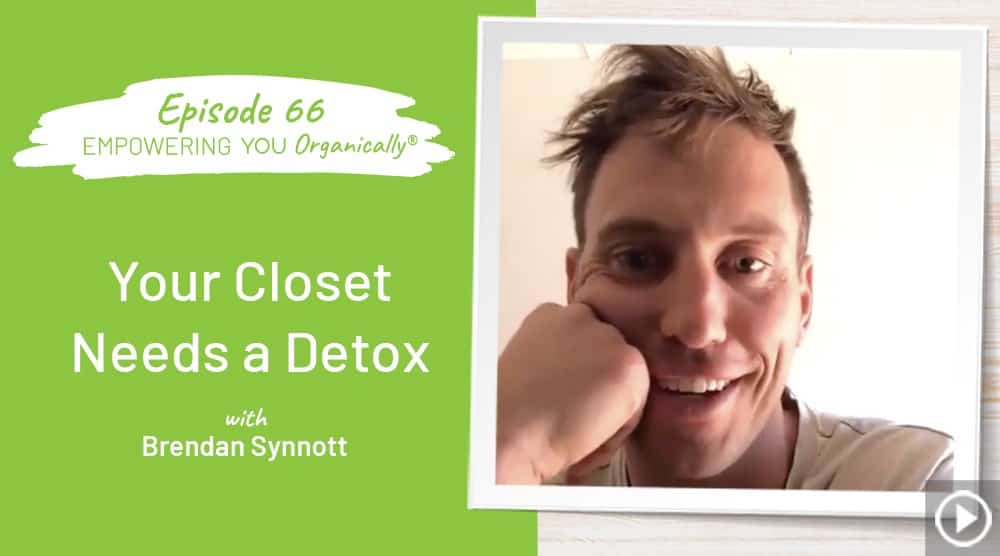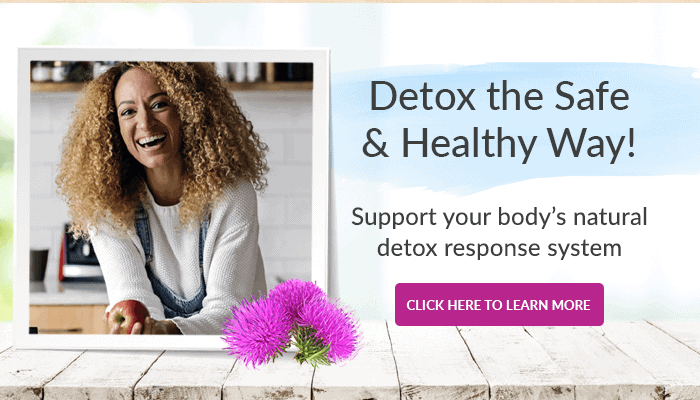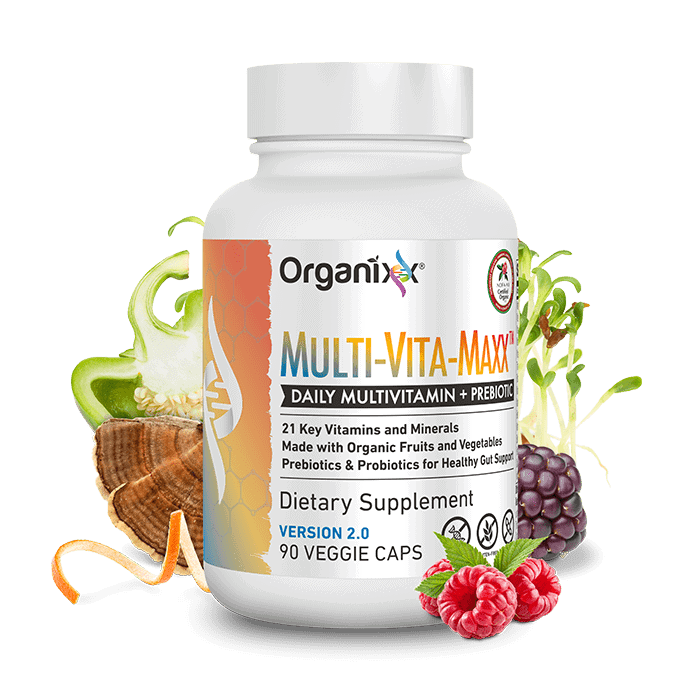Empowering you Organically – Season 7 – Episode
Title: Your Closet Needs a Detox!
Hosts: Jonathan Hunsaker, TeriAnn Trevenen
Guest: Brendan Synnott
Description: Your closet needs a detox! Listen in as Brendan Synnott shares his passion for organic clothing. It’s not just for the cuddle factor either. Did you know that conventional cotton is widely known as the world’s dirtiest crop? Brendan is now taking on the $3 trillion apparel industry, the world’s second-largest polluter, as CEO of the organic fair-trade cotton apparel company, PACT.
Featured Product
Total Body Fuel Containing Vitamins and Enzyme-Activated Materials to Provide Critical Nutrients to Your Body
- Whole food supplement with ZERO synthetic ingredients
- 21 uniquely fermented vitamins and enzyme-activated minerals
- Made with 8 organic superfoods and botanicals
- Patent-pending fermentation process maximizes potency and absorption
- Replaces your current multivitamin, vitamin C, B complex, D3, and any whole food fruit & veggie supplement
- Prebiotics and probiotics support overall gut health
- Non-GMO; No fillers, additives, artificial flavors, preservatives, colors, yeast, soy, sodium, or starch
* * *
About Brendan
Brendan believes that by changing something as simple as your underwear, you can change the planet. Having cofounded organic food brand Bear Naked Granola and selling it to Kellogg for more than 80 million in 2007, Brendan is now taking on the $3 trillion apparel industry, the world’s second-largest polluter, as CEO of the organic fair-trade cotton apparel company, PACT.
Long before he started working to clean the dirty apparel industry, Brendan was advocating for natural products. After college, he launched Bear Naked, the brand that helped kickstart a food revolution, disrupting the market dominance of companies that churned out junk food, as consumers latched on to the value of organic natural foods.
After bootstrapping for years, he eventually sold Bear Naked to Kellogg’s for 80 million, and Brendan’s odyssey as an eco-conscious entrepreneur moved to pet food, with I and Love and You, organic, ready-made food with EVOL foods, sold for 48 million, and angel investing in innovative natural foods and consumer product businesses with Revelry Brands.
Now with PACT, he’s leading a passionate team to change the apparel industry for the better, using organic cotton as the foundation for addressing the labor and environmental issues that surround clothing.
Before building food and lifestyle brands from scratch, Brendan worked backstage at Saturday Night Live, and later joined the cast of CBS’s reality show, Survivor. Between being blindsided on the world’s most popular reality show, working on live TV, and building and funding innovative food and lifestyle businesses, Brendan is also a proud father of four, including two adopted children.
* * *
How Brendan Got into This
- When I was like 11-12 years old, my grandfather had a heart attack.I saw my grandfather go through it. He radically changed his diet, and as I watched him radically change his diet, it just gave me a different kind of understanding of food and the impact of what you put in your body is going to impact how long you live, how strong you are, how you feel every day, how you wake up, how you go to the bathroom, all of it.
- When I was working at Saturday Night Live, I was off for the summertime, and I ran into a girl that I went to high school with, and she was selling granola in a local farmer’s market in Connecticut, and I was just like “Oh, I’ll help you go make it.I’ll help you go sell it,” and she was making it in a local deli, and selling it, and I just helped her and enjoyed it.
- And she was like “Why don’t you buy half my company?”And I bought half the company from her for $3,700.00.
- And so, we both moved back in with our parents, didn’t pay ourselves for the first two years, and took all the money and the proceeds that we had from the business and kind of dumped it into growing it, and had a great outcome in it, and selling it to Kellogg one day.
- After Bear Naked, I started a frozen food business, which is called EVOL Foods, which is love spelled backwards, and that was organic burritos, organic frozen pizza, just kind of ready-to-eat meals, and then, also started the pet food business, and then also started an organic candy business.
- I’m always interested in white space and kind of taking on the next big thing, the next big giant, and trying to create a vehicle for consumers to go make change, and that’s what kind of led me to fashion, because it’s something that we wear every day.
Why Is It Important for Clothes to Be Organic?
- Your clothes are grown in the same fields as your food.
Cotton’s widely known as the world’s dirtiest crop, conventional cotton. It’s responsible for like 25 percent of the world’s insecticides and 20 percent in pesticides, the combination, 20-25 percent of that. Yet, cotton only takes up 7 percent of agricultural land. And cotton is also incredibly thirsty crop. It uses massive amounts of water.
- Your clothes are grown, too, that is unless you’re wearing a performance item.I’d rather wear something that’s natural, something that’s organic, something that’s not plastic on my body every day.
- 70 percent of what’s in your closet is made out of cotton.
- Cotton has to be turned into the fabric, then the fabric is dyed.And through that dying process, people ingest chemicals into the dying process, when organic certification says they’re not injecting chemicals that are going to hurt you or that are toxic.
- One of the first solves that doctors say is start using organic cotton products, or organic clothing, because they’re going to have less, less residues from pesticides and other toxic materials as part of it, which could impact somebody that has sensitive skin.
Environmental Impact
- The apparel industry is actually the second biggest polluting industry on the planet, behind oil and gas.
- Apparel manufacturing is responsible for 25 percent of the world’s water pollution.
Two Benefits for Organic Cotton
- Organic cotton uses over 80 percent less water.
- When you’re growing the organic cotton, it uses less water because of the organic farming practices in terms of crop rotation and irrigation allow for a lot less water usage than genetically modified cotton that’s sprayed with a bunch of chemicals in order to make it grow.
- Waterways were destroyed by areas that were dying and fabricating textile production, because of the amount of water used to dye garments, and then the discharge of all those dyes was then going directly into water streams.
What to Look For
- “Oh, I make sustainable apparel.”Is it legitimate?
- What does that mean?Does that mean like one percent of the fabric content of your product is made of sustainable materials, or 99 percent of the ingredients are made of sustainable materials?
- Organic certification
- Organic farming practices are scientifically proven to be more sustainable than traditional farming practices in the apparel space.
- GOTS – Global Organic Textile Standard
- That is kind of the gold standard of certification of organic practices throughout the supply chain, making sure that, all the way from the farm to the factory, and everywhere in between, is governed with organic practices, both in the farming piece of it as well as the dying piece of it.
- Even our warehouse has to be organic certified.The factory has to demonstrate capability of segregating organic and non-organic ingredients when they’re manufacturing products to ensure that there’s no cross-contamination.
- There’s also a cleaning process of the factory equipment, and then there’s also standards, standard operating procedures that have to happen within the factory to make sure that it’s a clean factory, people are being treated well, that the use of chemicals is not occurring where it could contaminate the organic ingredients.
- The only real difference is that we’re not edible, we’re not making edible cotton, but in terms of the chain of custody, the lack of kind of bad stuff as part of the process, and the lack of contamination as part of the process, all extremely similar to food.
The Human Aspect
- The one thing that’s different for us, and we haven’t touched on it, is just the other kind of really important part of apparel production, is the human aspect.
- At PACT, we say the people that wear our clothes are equal to the people that make our clothes.
- We utilize the Fair-Trade Standard.
- That’s to make sure that farmers are paid equal profits in terms of when people are buying their crops.
- Fair Trade also started to certify factories to make sure that women are treated equally to men, to make sure that they’re paid the appropriate wages, and then specifically, the fair trade premium that we pay into at all of our factories is money that doesn’t go to our factory and goes directly to the factory workers, that then they can choose how to spend it.
Labeling Products
- You’ll see the GOTS certification on the outside of the box, and then you’ll actually see it on the garment itself.
How Is It Being Received?
- I don’t think we’ve reached the tipping point now, but I’m so proud, if you go to like the New York Times, and pretty much every month now, in the New York Times, there’s an article about what your closet’s impact to the environment is, or how you can try to quit fast fashion.
- And there’s so much more awareness on it, and for the first time, for me, I feel that kind of like same wave that comes up behind you in all these categories that we did at the Bear Naked, you work, you work, you work, and then this giant wave comes behind you and just like lifts everything that you’re doing, and I feel that wave coming behind us right now.
- I think over the next 24 months, and over the next 12 months, there’s going to continue to be an acceleration of articles, stories, and educational pieces around what impact what people wear has, just because I just think culturally, it’s what we wear is so important to how we are seen, and so, just all of that kind of waking up.
- What’s also really helped us the past couple years is just people’s desire to shop online.We sell all of our product online. We sell in Whole Foods, and then we sell 90 percent of our business is online. That’s where the bulk of it is.
- And selling online, direct to consumers, allows us to invest more in the ingredients, invest more in the certifications, make products in a better way, remove the middleman of traditional retail, and then give a better value to consumers, where they don’t have to pay more to do the right thing.
Clothing in Landfills
- How many pounds of clothing does the average person throw away in the landfill on a yearly basis?
- Over 80 pounds of clothing the average person throws away on a yearly basis.
- Why?
- Because they’re making stuff, “fast fashion” is making disposable clothing really cheap overseas that’s built to be worn once and thrown away.
- What we do at PACT is, every time you buy a product from us, we have a give back program.So, you can print out a free shipping label and take the box that you received our product in, or any other box that you want in your house, and then you can take your clothes, put them in that box, and then we will route them to a charity that needs them and try to reuse the garments, because ultimately, people are not throwing clothes away because they have holes in them or they’re not wearable anymore, they’re throwing them away because they’re done chasing that fashion.
What’s One Change People Could Make When It Comes to Their Clothes?
- Don’t buy anything new.
- Go find an authentic garment that was well-made from a long time ago and that’s been worn a bunch of times, and you go make it yours.
- Give your clothes to other people if you’re done with them.
* * *
Subscribe to Empowering You Organically
Never miss an episode!
APPLE PODCASTS SPOTIFY GOOGLE PODCASTS





